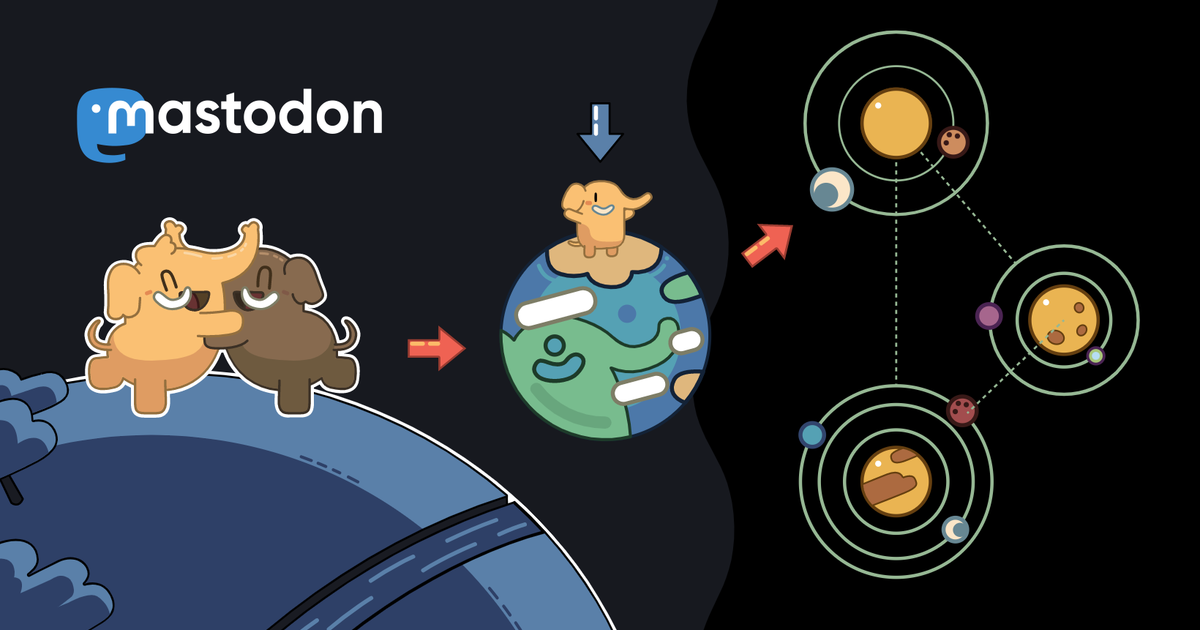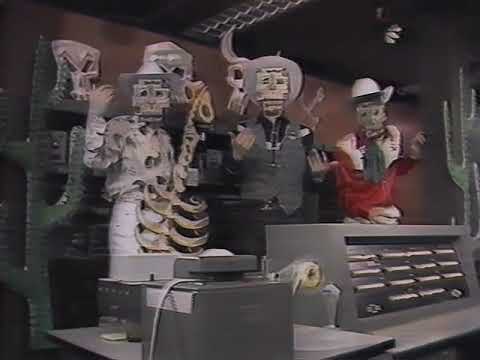#NeueDeutscheWelle
#DenTagStarten
#music
Heute mit #NeueDeutscheWelle
Joachim Witt - Goldener Reiter
https://song.link/s/7sgbBeINoJ4TDUDIloK9li
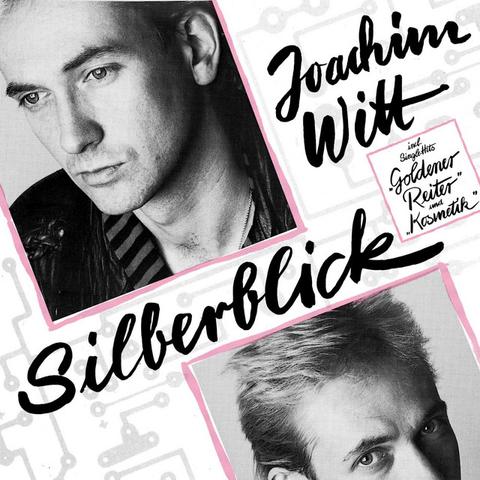
Self-Titled Summer | Trio (1981, Germany)
Our next spotlight on a Fedi-recommended self-titled album is on number 365 on The List, submitted by platenworm. The minimalist Neue Deutsche Welle trio called Trio was Stephan Remmler on lead vocals and keyboards, Gert “Kralle” Krawinkel on guitar and backing vocals, and Peter Behrens. This album is their debut, produced by Klaus Voormann (former bassist for Manfred Mann and Plastic Ono Band, among other things) and featuring the actual address and number for the band's shared home on the cover...a choice that would eventually lead to them moving out and breaking up. A song that got added to a reissue became a huge international hit, "Da Da Da (ich lieb' dich nicht du liebst mich nicht aha aha aha)", and has since appeared in a variety of places such as a 1997 VW ad and that piece of cinematic greatness, Bio-Dome.
Want to read more? See the full spotlight on the Fediverse at @1001otheralbums.com or on the blog: https://1001otheralbums.com/2025/09/27/self-titled-summer-trio-1981-germany/
Want to skip straight to the music? Here's a(n unofficial) Bandcamp: https://triofan.bandcamp.com/album/trio-full-album-1981
Happy listening!
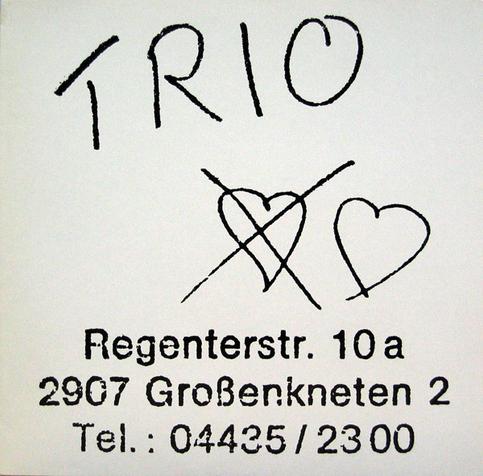
Self-Titled Summer | Trio (1981, Germany)
Our next Self-Titled Summer spotlight is on number 365 on The List, submitted by platenworm. Here’s a quick rundown:
- Point of origin(s): This minimalist Neue Deutsche Welle trio formed in 1979 originally under the name Zam, with Stephan Remmler on lead vocals and keyboards, Gert “Kralle” Krawinkel on guitar and backing vocals, and Peter Behrens – a fresh graduate of uh, clown school – on drums and backing vocals. Remmler and Krawinkel had previously played together in a Beat music band, Just Us (1966-70); following a reunion show in 1979, the two decided to work together again, and recruited Behrens for Zam/Trio. In 1981, the band snagged a record deal based on a s/t mini-album recorded that year and the advice of Klaus Voormann, former bassist for Manfred Mann and Plastic Ono Band, graphic designer, and session musician for artists such as Lou Reed, the former/non-McCartney Beatles, and Harry Nilsson. The band released this debut studio s/t the same year, recorded in a (converted) cowshed and produced by Voormann. Though the band put their actual address and phone number on the album cover, they apparently tried to remain anonymous at the time, including no band info in the liner notes (just the names “Remmler/Kralle” on the label credits) and using fake names at concerts. In its first year of existence, the album was released in three different versions, its 3rd edition (1982) being the first to have commercial success as it had a single that had become an international hit (and would remain the band’s most well-known/covered song), “Da Da Da” (full English title being “Da Da Da I Don’t Love You You Don’t Love Me Aha Aha Aha”).
- Tasting notes: Neue Deutsche Welle or “Neue Deutsche Fröhlichkeit” (“New German Cheerfulness”), i.e., minimalist synth-pop, mix of German and English lyrics
- Standout track: “Broken Hearts for You and Me”, “Sabine Sabine Sabine”, “Sunday You Need Love, Monday Be Alone”, and, if it’s okay to list a non-original-release song, “Da Da Da”.
- Where are they now?/RIP: Trio would technically release just one more studio album, Bye Bye (1983), as their 1985 album What’s the Password was a soundtrack for a film Trio produced and starred in, Drei gegen Drei (1985). The film would be a flop, and the soundtrack for some reason did not include any performances by Behrens on drums. Also, in 1984, both Remmler and Behrens moved out of their shared house (the address on the s/t cover), at least in part due to getting too many visits from curious fans. All of these things may have been contributing factors for Behrens leaving the group and the band breaking up in 1986. Voormann would produce both of the band’s other albums, as well as their live album and then solo work by Remmler and Behrens.
In 2001, the s/t was apparently voted the 3rd most important German record in a major German music magazine (no idea which one), behind Kraftwerk and Nina Hagen Band. Behrens and Krawinkel have since left us (in 2014 and 2016). - Websites: Stephan Remmler’s website, Wikipedia
Happy listening!
- Bandcamp: Trio – Trio (note this is a fan Bandcamp, not an official account; has a few extras including a couple versions of “Da Da Da”).
- Discogs: Trio – Trio
https://www.youtube.com/watch?v=sSJKgy9h7g4
War das schon Cyberpunk? 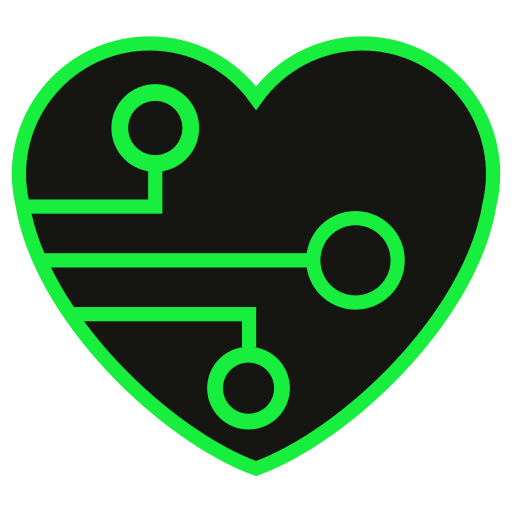
So mag ich NDW (ausnahmsweise)
Did you at my one point wonder, why in 1982 suddenly German songs like Trio's "Da Da Da" or Nenas "99 Luftballons" entered the international charts and - at least Trio - where slightly unusual?
From what scene did they emerge from?!
You may find out during the upcoming
RADIO IRRTUM! Special. About the NDW that wasn't
(on air from Berlin)
Deutsch Version of this announcement here:
- https://mastodon.de/@herr_irrtum/115113645412161528
Da next issue of #RadioIrrtum! will air this Saturday, 2025/08/30, 8:00pm UTC+2, Berlin time. At Alex Berlin FM at 91MHz / DAB+ K7D around #Berlin + worldwide at https://www.alex-berlin.de/radio-livestream .
Why? What is this?
#Radio Irrtum! is a German language (usually) #radioShow exploring the sonic vastness of the #underground. Emitted transmissions may raise attention for new unheard #music all over this planet's genre spectrum. Don't worry about that German language - it's about the music!
Well about the latter… not this time! Neither will I talk in German the whole time but mostly in English! Because this matter is too important for the World to know (I think). Nor is this new music. But music mostly from 1979-1981, the small time frame before the "real" Neue Deutsche Welle ("NDW") broke all over, the thing the music industry transformed it into (a cash cow), something completely different compared to what its pioneers intended.
This is about those pioneers. Sick of art, or progressive rock, and punk they wanted to do something completely off limits, something completely new, something "Anti music" that still somehow was "music". Just so different. A one in a thousand years moment where people tried to get on a different track. A moment that didn't come back since.
This radio special can only cover the surface of that super diverse scene; a scene agreeing on one thing only: About not doing rock music.
Which will make this special issue maybe the most complicated, hard to get into Radio Irrtum! show ever. But if you make it, you will be rewarded, yes rewarded, with most unusual concepts in music, with humor in music (yes! - not just in text) and all in all something, you may carry with you for your whole life. If you are open to it. I mean it. I certainly did.
So: Can you stand it? Are you up to the task?
One more thing: I've prerecorded this not knowing, that Alfred Hilsberg (Zickzack Label) would leave this planet forever some days later. This show is dedicated to him. Thanks Alfred, for the sonic light you carried.
I'll post playlist + manuscript later here (provided I’m home, else it will come up the day after). And if you have questions? I'll gladly answer! Just ask!
CU all on Saturday! :)
#Avantgarde #experimentell #Antimusic #neueDeutscheWelle #ndw #noNDW #KeineNeueDeutscheWelle #strangeMusic #Germany1980 #genialeDilletanten #radioArt
Habt Ihr Euch schon mal gefragt, warum 1982 plötzlich deutsche Songs wie Trios „Da Da Da“ oder Nenas „99 Luftballons“ fett in die internationalen Charts einstiegen obwohl sie – zumindest im Fall von Trio – eher ungewöhnlich waren?
Welcher Bewegung sind die eigentlich entsprungen?!
Das erfahrt ihr im kommenden
RADIO IRRTUM! Spezial. Über die NDW, die es nie geben sollte
Englische Version dieser Ankündigung hier:
Die nächste Ausgabe von #RadioIrrtum! läuft diesen Samstag, den 30.08.2025, um 20:00 Uhr über Alex Berlin auf 91 MHz / DAB+ K7D in #Berlin und weltweit unter https://www.alex-berlin.de/radio-livestream .
Warum? Was ist das?
#RadioIrrtum! ist eine #Radiosendung, die die klanglichen Weiten des #Undergrounds erkundet. Die ausgestrahlten Wellen lenken Eure Aufmerksamkeit auf neue, ungehörte #Musik (normaler Weise), und decken dabei ein unglaublich großes Spektrum an Genres ab.
Dieses Mal ausnahmsweise in großen Teilen in (einfacher!) englischer Sprache – damit die ganze Welt davon erfahren kann. Es geht natürlich diesmal nicht um neue Musik. Sondern um Musik hauptsächlich aus den Jahren 1979–1981, dieser kurzen wilden Zeitspanne, bevor die „echte“ Neue Deutsche Welle („NDW“) überall durchbrach. Also, das, wozu die Musikindustrie sie machte (ein gewinnorientiertes kommerzielles Etwas) – nämlich zu etwas ganz Anderem als das, was ihre Pioniere beabsichtigten.
Und genau um diese Pioniere soll es gehen. Sie hatten genug von Kunst, Progressive Rock und Punk und wollten etwas völlig Außergewöhnliches machen, etwas völlig Neues: „Anti-Musik“, die trotzdem irgendwie „Musik“ war. Ein Moment, den es nur einmal in tausend Jahren gibt, in dem die Leute versuchten, einen anderen Weg einzuschlagen. Ein Moment, der seitdem nicht wiederkehrte.
Dieses Radiospezial kann nur einen Teil dieser extrem vielfältigen Szene abdecken; einer Szene, die sich nur in einem einig ist: Unter keinen Umständen Rockmusik zu machen.
Damit ist diese Sonderausgabe vielleicht die komplizierteste und am schwersten zugängliche Radio-Irrtum!-Sendung aller Zeiten. Aber wenn ihr Euch traut, werdet ihr belohnt mit höchst ungewöhnlichen Konzepten in der Musik, mit Humor in der Musik (ja! – nicht nur im Text) und insgesamt etwas, das euch vielleicht ein Leben lang begleiten kann. Wenn ihr dafür offen seid. Bei mir ist das jedenfalls so.
Also: Könnt ihr das aushalten? Seid ihr der Aufgabe gewachsen?
Playlist und Manuskript später hier drunter (vorausgesetzt, ich bin zu Hause, sonst kommt es erst übermorgen). Und falls ihr Fragen habt? Ich antworte gerne! Stellt sie einfach!
Eins noch. Ich habe die Sendung aufgenommen, ohne zu wissen, dass wenige Tage später Alfred Hilsberg (Zickzack Label) diesen Planeten für immer verlassen würde. Diese Sendung sei ihm gewidmet. Danke, Alfred, dass Du uns all diese neuen klingenden Wege aufgezeigt hast!
Bis Samstag dann! :)
@RickiTarr
In germany it could also be
Ich will Spaß by Markus (https://song.link/de/i/306312074)
#NeueDeutscheWelle anyone?
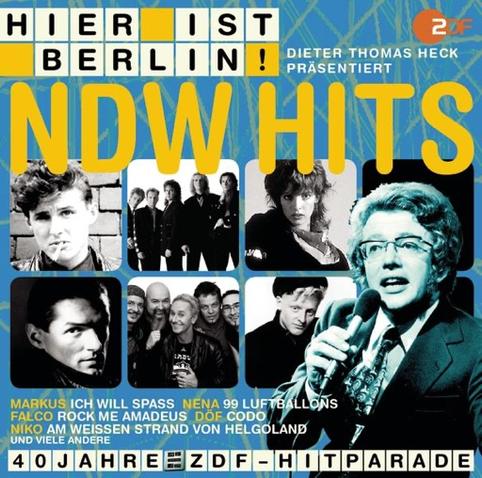
Alfred Hilsberg ist tot
Eine der einflussreichsten Personen der deutschen Musikszene ist tot: Alfred Hilsberg starb am 18.08.2025 in Hamburg im Alter von 77 Jahren. Es gibt Leute, die einen Groll auf ihn hegten, weil er ihre Musik abgelehnt hatte. Ein prominentes Beispiel ist die Band Extrabreit, die ihn dafür in ihrem Lied „Komm nach Hagen“ abwertend erwähnten und auch Trio soll er verschmäht haben. Hilsberg schrieb im Musikmagazin „Sounds“ zunächst über die deutsche Punk-Szene und später über die New-Wave-Szene, die schließlich die Neue Deutsche Welle wurde.
Dass er bei seinem Label-Motto „Lieber zuviel als zu wenig“ überhaupt Bands abgelehnt hat, ist erstaunlich. Gleichzeitig hat er vielen erfolgreichen Indie-Bands auf den Weg geholfen. Zu den ersten Veröffentlichungen auf seinem Label Zickzack gehörten Abwärts, Freiwillige Selbstkontrolle, Palais Schaumburg, Andreas Dorau, Kosmonautentraum, Die Krupps, Xmal Deutschland und Einstürzende Naubauten. Es wurde gesagt, dass er der Vater und Namensgeber der Neuen Deutschen Welle gewesen sei, aber von der guten Seite.
Nachdem die NDW ausgelaufen war, war er Mitbegründer der Hamburger Schule mit Blumfeld und Jens Friebe. Außerdem veröffentlichte er mit seinem Zweitlabel What’s So Funny About Tonträger von Die Erde, Die Haut, Kastrierte Philosophen und 39 Clocks. Ich habe den Sampler Deutschland Strike-Back schon vorgestellt, auf dem einige der Bands vertreten sind.
Ich bin Alfred Hilsberg zu tiefem Dank verpflichtet, für die Musik, die er mir beschert hat. Möge ihm die Erde leicht sein.
DiscogsDienstag: Grauzone – Grauzone
Manche werden Grauzone für ein NDW-One-Hit-Wonder halten. Das kann eins so sehen, denn tatsächlich hatte die schweizer Band um die Brüder Martin und Stephan Eicher zu Beginn der 1980er Jahre einen großen Hit: „Eisbär“. Der wurde 1980 auf einem „Swiss Wave“-Sampler veröffentlicht, bekam daraufhin Radio-Airplay und wurde von der aufkommenden Neuen Deutschen Welle erfaßt. Allerdings ließen sich Grauzone darüberhinaus (für „Eisbär“ wurde ein Vertrag mit EMI geschlossen) nie von der kommerziellen Seite der NDW vereinnahmen, sie gaben kaum Konzerte, traten kaum im Fernsehen auf und gaben kaum Interviews. Die Band löste sich schließlich nach dem ersten selbstbetitelten Album 1982 auf und die Musiker widmeten sich anderen Projekten, die jedoch alle nicht die Bekanntheit von Grauzone erreichten, trotz deren kurzer Schaffensperiode.
Grauzone (das Album) enthält „Eisbär“ nicht, dafür aber zehn Lieder, die sich mehr so am Rande der NDW befunden haben. Einige haben es trotzdem auf NDW-Sampler geschafft, z. B. „Marmelade und Himbeereis“, das als NDW-Ballade beginnt, mit einem Text über einen Sommer in Italien, Augen so blau wie das Meer und dann mit der Zeile „Romantik am weißen Strand, unser Blut tropft in den Sand“ und einem wütenden „Wir sind alle prostituiert!“ im Gitarrengewitter endet. Ich könnte es als NDW-Antisong oder zumindest Persiflage bezeichnen, wobei ich natürlich nicht weiß, ob es so gemeint war. Ansonsten haben Grauzone meiner Meinung nach zeitlosen Post-Punk mit Minimal Wave abgeliefert. Wie einige andere Künstler zu der Zeit bauten sie Synthesizer und elektronische Klänge in ihre experimentelle und Punk-beeinflusste Musik ein.
Zum 40-jährigen Jubiläum der Veröffentlichung erschien im Jahre 2021 eine Box mit 3 LPs, die nicht nur das Album enthält, sondern auch die Lieder, die vorher auf Singles und EPs enthalten waren. Ja, auch „Eisbär“. Die dritte LP enthält eine Live-Aufnahme mit teils unveröffentlichen Songs.
Trotz des überschaubaren Vermächtnisses sind Grauzone für mich eine der besten Bands ihrer Zeit, die zudem heute noch hör-, spiel- und tanzbar sind, auch beim #GothDiscoInferno.
Ideal / Ideal (1980); Berliner Luft, kühle Worte, heiße Kanten: Das selbstbetitelte Debüt „Ideal“ von Ideal aus dem Jahr 1980 ist ein scharf geschnittener Meilenstein. Keine großen Synth-Spielerei, sondern Gitarren, Bass und Annette Humpe als lakonische Erzählerin urbaner Zustände. „Blaue Augen“ und „Berlin“ knistern vor unterkühltem Charme. #Ideal #IdealBand #NDW #AnetteHumpe #NewWave #Punk #NeueDeutscheWelle #Deutsch
Fehlfarben / Monarchie Und Alltag (1980); Ein zeitloser Meilenstein – wütend, klug, kühl. Mit schneidenden Gitarren und lakonischen Texten zerlegen Fehlfarben die BRD-Spießigkeit. Kaum ein Album läuft bei mir öfter auf dem Plattenteller. Immer noch relevant, immer noch brillant. #Fehlfarben #PeterHein #Duesseldorf #AlternativeRock #NeueDeutscheWelle #PostPunk #NewWave #Punk
Ich sollte mal Werbung für #KlangDa machen, die noch immer völlig zu Unrecht unbekannte #Bänd ,mit dem Potential die #NeueDeutscheWelle zu rehabilitieren.
CALI – cool
(NNDW - diy)
CALI hat sich einige weitere Künstler*innen an Bord geholt, um, gekonnt im Songwriting und Timing untergebracht, ihre Musik, die nur aus Bass, Drums und Vocals besteht, aufzufüllen.
Eine Trompete, Chor, Blockflöte, Windrohre, ein Roland SH 1500 (und einiges mehr) komplettieren die Soundwelt.
Felix hat seine Nadel durch die Rillen dieser Vinyl gejagt.
https://vinyl-keks.eu/cali-cool/
Im #DeutschsprachigerDonnerstag ist das heutige großartige Thema #NeueDeutscheWelle. Wheee, meine Kindheit. Da gibt es einfach so viel fantastisch und gleichzeitig grottige Auswahl.
Meine Entscheidung fällt heute mal auf ...
#DÖF !
